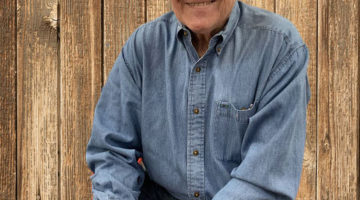|
Q: When did you stop being called Laura, your given name? A: I have been called Reese since I was a baby. From the beginning of the press conference, there had been much discussion of the multi-dimensionality of all the characters, Becky in particular. While in one scene the audience might seriously question Becky, in the next you feel compelled to like her, or, at least to sympathize with her. Q: How do you compare with Becky in that we do not know what Becky valued more, romantic love or friendship with her only female friend? A: Becky was me, me, me! I allowed myself and her to bond until we were an intertwined personality during filming. Whatever suited Becky better on a given day is what she would choose. Q: What kind of motherly sacrifices did Becky make and how did you relate as a mother? A: Becky chooses to abandon her children in order to live her own life. Mira and I discussed this many times and we were trying to reconcile the choices she made. It was certainly a point of contention. In the end we decided that the character was really motivated by self interest. Of course I, as a mother, cannot relate. There were many aspects of Becky's character that I could relate to, but that was just too far of a reach. When I saw this film, I cried and cried. There are so many ways that a film that is set in Victorian England resonates with our lives today. In addition to covering timeless themes, such as love, lust, money, indulgence, and yearning, the film leaves you pondering how you handle it when you aggressively pursue something that you think that you really want and then, once you get it, you realize that the consequences don't suit you at all. While this film is certainly just as good as others in its genre, including Sense and Sensibility and the Importance of Being Earnest, it is far more dramatic and certainly captures the social upheaval of historically significant events such as the invasion of Brussels and the Battle of Trafalgar in 1805. The film is aesthetically enticing, with beautiful lighting, exquisite costumes, and complimentary music. In fact, Witherspoon even does a good amount of singing which she admitted was her biggest challenge in the film. While there were several cultural anachronisms, such as obviously modern hair and music and dancing that just don't quite fit the period of which they are supposed to be products, the movie is wonderful. Several of the dancing scenes seemed odd and out of place. At the press conference it was mentioned that Nair hired a Bollywood choreographer and dance troop to do these scenes. If the biggest error the filmmaker concedes are the glaring French grammatical mistakes that Becky Sharp perpetrates in an early scene when she is instructing her young pupils, than this movie should not be one to miss. Ultimately, we find ourselves grappling with questions, such as does true love conquer all and wondering who Becky truly loved more. Admittedly, I am always curious about the way women publicly and privately relate to each other. The line from Vanity Fair that left me thinking the most was when the Marquess of Steyne (Gabriel Byrne) told Becky it is “Women who keep the doors of society closed.” It left me wondering if women are struggling as a cohesive unit in a man's world, or, if in spite of our common struggle, we remain divided, and struggle not just for our own well-being, but also to overcome the challenges imposed by those that we should be closest to but are instead always measuring ourselves against? |
Vanity Fair (2004)
Vanity Fair (2004)










 Reese Witherspoon, like her character Elle Woods in Legally Blond, is warm, engaging, beautiful, and fabulous in every way. Even with dark brown hair for her upcoming role as June Carter Cash in the upcoming Johnny Cash biopic Walk the Line, she looked how most of us would after appearing on Extreme Makeover. Witherspoon explained that one of the primary reasons that she enjoyed this role is because she always feels a personal responsibility with how she represents women. In Vanity Fair, Witherspoon presents a complex character beautifully, even when her character's choices vastly depart from her own values.
Reese Witherspoon, like her character Elle Woods in Legally Blond, is warm, engaging, beautiful, and fabulous in every way. Even with dark brown hair for her upcoming role as June Carter Cash in the upcoming Johnny Cash biopic Walk the Line, she looked how most of us would after appearing on Extreme Makeover. Witherspoon explained that one of the primary reasons that she enjoyed this role is because she always feels a personal responsibility with how she represents women. In Vanity Fair, Witherspoon presents a complex character beautifully, even when her character's choices vastly depart from her own values. In the film, based on William Makepeace Thackeray's classic novel, Reese plays Becky Sharpe, an extremely astute and ambitious social climber who has the ability to fit in and become the center of attention whether she is in the back cart of a stage coach or at a society ball. She has a way with men and uses her feminine whiles to her advantage throughout the film. Witherspoon, who was pregnant at the time, uses her physical condition and revealed at the press conference that she was perfectly comfortable with her body, even during intimate love scenes. Witherspoon explained that she felt that the director, the celebrated Mira Nair (Monsoon Wedding), was so concerned with revealing the beauty of the feminine form and with an artistic presentation that she remained comfortable throughout. Further, she thought that revealing her own body in such a way helped her character to seem more vulnerable. Becky, orphaned as a young girl, is able to rise from her setting and make the most of her innate virtues, seeming anything but vulnerable most of the time.
In the film, based on William Makepeace Thackeray's classic novel, Reese plays Becky Sharpe, an extremely astute and ambitious social climber who has the ability to fit in and become the center of attention whether she is in the back cart of a stage coach or at a society ball. She has a way with men and uses her feminine whiles to her advantage throughout the film. Witherspoon, who was pregnant at the time, uses her physical condition and revealed at the press conference that she was perfectly comfortable with her body, even during intimate love scenes. Witherspoon explained that she felt that the director, the celebrated Mira Nair (Monsoon Wedding), was so concerned with revealing the beauty of the feminine form and with an artistic presentation that she remained comfortable throughout. Further, she thought that revealing her own body in such a way helped her character to seem more vulnerable. Becky, orphaned as a young girl, is able to rise from her setting and make the most of her innate virtues, seeming anything but vulnerable most of the time.